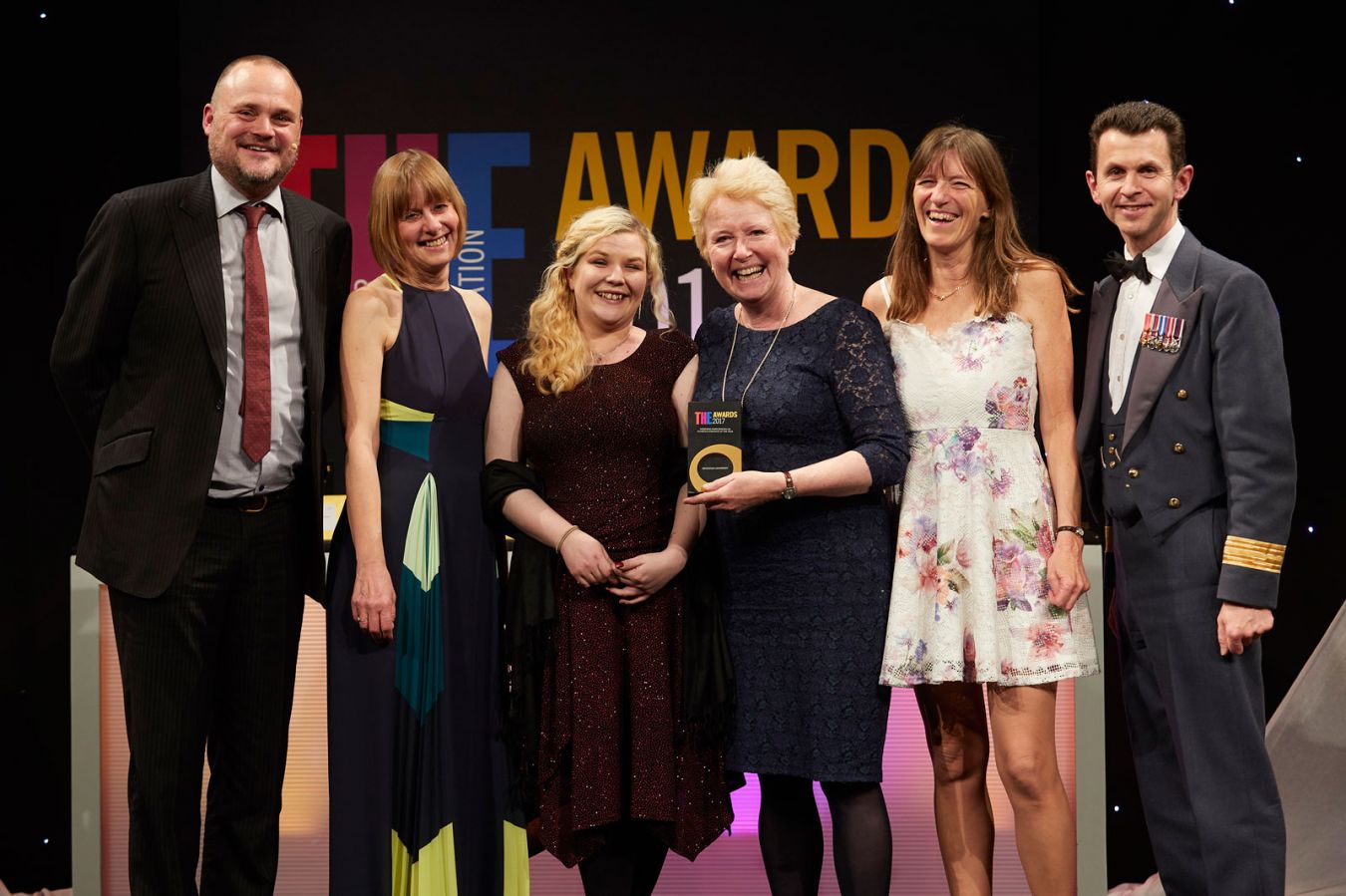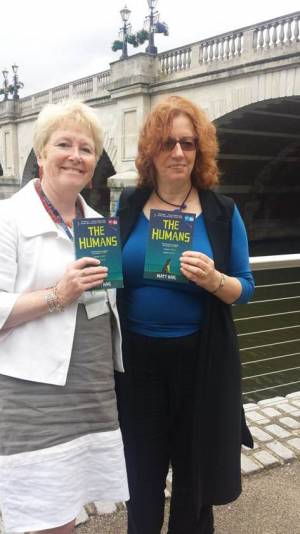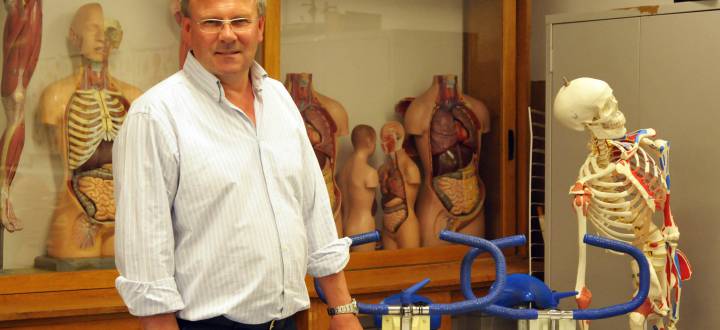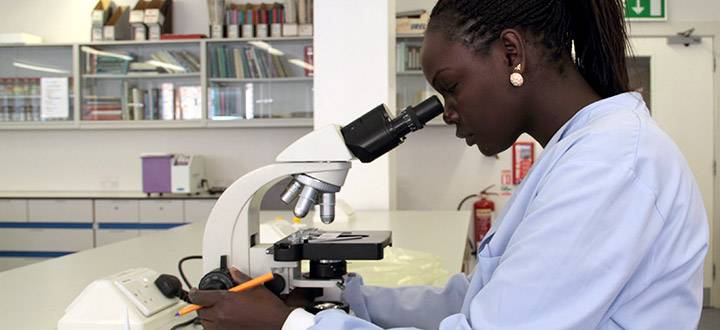How shared reading joined up an entire institution

The Kingston University Big Read
A shared reading initiative intended to promote the effective transition of first-year students into higher education.
Helping students make an effective transition into university is a general problem within higher education. Students arriving at university tend to be nervous about making friends, anxious about whether they have chosen the right subject and worried about the value of the investment they are making in their future and the associated debt they are taking on. For students who are the first in their family to come to university this can be a particular issue. But we do know that the earlier universities start engaging their students, the more likely both the short and long-term outcomes are to be successful.
Associate Professor Alison Baverstock had seen pre-arrival shared reading used in the US as an aid to student transition. As a former publisher, with a long-term commitment to the value of reading, she was keen to explore whether Kingston students would welcome a shared reading programme, and whether sharing a book would impact on the sense of welcome they experienced and how early they engaged in both the university and their course.
Baverstock organised initial research to explore the leisure and reading habits of Kingston students, and whether they would value receiving a free book from their new university. She worked in collaboration with a cohort of Masters and third year students, developing their research skills through interviewing a representative sample of first year students.
The results were far more positive than had been anticipated. Reading for pleasure played a significant part in the leisure activities of first years, even during Welcome Week, and was an activity they enjoyed. The response to the idea of sharing a book before arrival was very well received, particularly by those who were not living in halls of residence and had long commutes. On this evidence The Kingston University Big Read was launched in June 2015 with a bespoke edition of Nick Hornby's 'About a Boy'. A copy was sent to every new undergraduate and Masters student, and copies were also available to staff.
Research gap and associated findings
 In the US, pre-arrival shared-reading is fairly routine - but as it tends to be organised by the marketing or engagement offices, it is more often described than analysed. In the UK, while other universities have experimented with shared reading, often within particular departments or disciplines, little research has been carried out. So Kingston's launch in 2015 of the first whole-university pre-arrival shared reading research project was significant.
In the US, pre-arrival shared-reading is fairly routine - but as it tends to be organised by the marketing or engagement offices, it is more often described than analysed. In the UK, while other universities have experimented with shared reading, often within particular departments or disciplines, little research has been carried out. So Kingston's launch in 2015 of the first whole-university pre-arrival shared reading research project was significant.
After the book was sent out to all new students, there was a range of follow-up activities. The author visited the campus, answered questions and signed books, and Welcome Week featured a variety of related events. A survey sent to staff and students found very high levels of project approval and a common view that this was a significant factor in making Kingston students feel welcome. Both students and staff reported discussing the book, and the initiative, with a variety of different individuals, providing common ground at a time when many students are experiencing tension. Within the context of Kingston University's commitment to inclusion, adding social value and transforming life chances, the project correlates with a significant fall in the university's drop-out rate, which fell by 24% in the first year of the scheme and a further 15% the following year.
What was particularly surprising was the response of university staff to the scheme. They reported feeling more connected and significantly more in touch with the university, and their demand for copies of the book was so strong that it had to be reprinted twice. Now in its third year, the project continues to join Kingston University up, as well as connect it to its wider community.
Collaborating within higher education and beyond
The Big Read expanded to Edinburgh Napier University in 2016, and to the University of Wolverhampton the following year, in each case exploring the impact of sharing books on students and staff and how different management mechanisms for rolling-out the scheme affect both individual and organisational involvement.
The project has also expanded beyond higher education. For example, Joel Community Services, which helps people experiencing temporary homelessness, worked with the Big Read to establish shared reading sessions. These have now developed into shared writing sessions, with the establishment of a library as a permanent feature of the common space and a change to guests' access hours if they are devoting time to reading. The Big Read has also worked with Coombe Boys' Senior School to study the impact of sharing a book in easing the transition between junior and secondary school. This has revealed a significant change in both pupil and staff behaviours that correlates with the introduction of shared reading. In collaboration with the local library authority, a series of 'best practice' seminars have been developed between academic and borough librarians.

The project won the prestigious 'Outreach or Widening Participation Initiative of the Year' at the Times Higher Awards in November 2017. The judges praised the way the project overcame the challenges of creating an inclusive, welcoming environment in a large and diverse institution.
The Big Read is now established as part of the institution at Kingston. The associated research programme has yielded rich data for future analysis.
Dr Baverstock says, "Above all, as our approach continues to be research-based, we now have three years' evidence that shared reading functions as an effective welcome for new students and an important community connector for our staff. We also know that shared reading has built significant links with our wider community, leading to placements and internships for our students and staff and a wider understanding of the role our university plays in Kingston and the surrounding area".
Find out more about Alison Baverstock
@kubigread #KUBR2017
Contact us
- For non-student research enquiries, email the Research Office
- Research contacts
- Graduate Research School contacts
- Business and Enterprise contacts
- How to get to Kingston University
Contact us
- For non-student research enquiries, email the Research Office
- Research contacts
- Graduate Research School contacts
- Business and Enterprise contacts
- How to get to Kingston University


